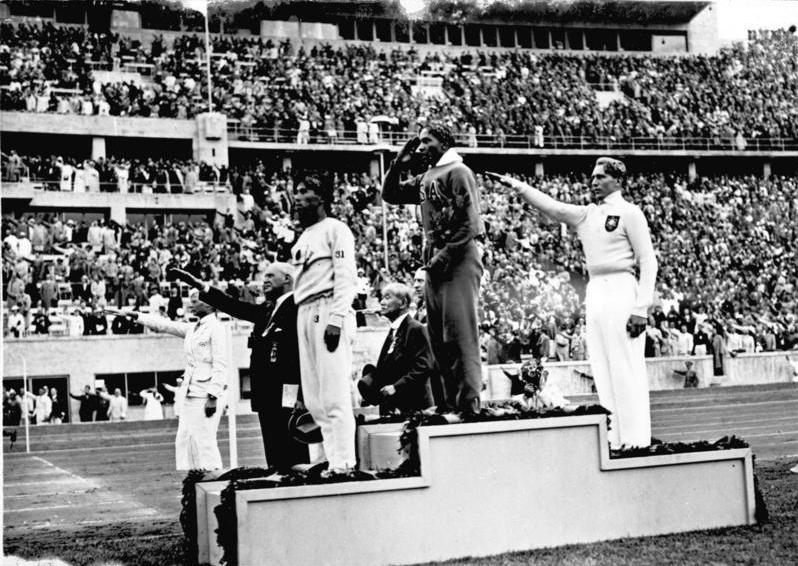“Find the good. It’s all around you. Find it, showcase it and you’ll start believing in it.” – Jesse Owens
Jesse Owens was an all-star American track and field athlete. He is best remembered for his performance at the 1936 Olympics in Berlin. By displaying his resilience and overcoming obstacles in the face of racism, he paved the way for many Black athletes, such as Jackie Robinson and others, to thrive on a national and global stage.
Key Facts & Information:
Early Life
- Jesse Owens was born in Oakville, AL, in 1913. His parents were sharecroppers; as a child, Owens was often ill with chronic bronchial issues and pneumonia.
2. By age nine, he relocated with his family to Cleveland, OH. His athletic career began as he set records in high school’s 100 and 200-yard dash.
3. His performance in high school earned him the moniker, “Buckeye Bullet.â€
4. Owens attended Ohio State University, but due to segregation and his financial status, he had to live off-campus and work multiple jobs to pay for tuition.
5. In 1935, Jesse Owens set a long jump record at the Big Ten Championship games. The long jump record of 26-8 ¼ stood for 25 years.
6. In that same year, 1935, Owens competed in 42 events, winning them all. He also married his wife of 48 years, Ruth Owens.
Career
7. Germany hosted the 1936 Olympics to showcase the superiority of the Aryan race. Hitler also heavily criticized America for allowing Black athletes to participate.
8. Owens angered Hitler by winning by dominating the event, winning a total of four gold medals. He became the 1st African American to win four gold medals and left a legacy on the international stage celebrated worldwide.
9. Upon returning home, he was not treated like the Olympic star and returned to a racist America during the Depression. President Roosevelt did not invite Owens and other Black athletes to the White House to congratulate their success.

10. He suffered financial hardship and could not capitalize on his Olympic success.
11. Because he could not leverage his commercial success, he was forced to file bankruptcy and took up racing against horses and other demeaning jobs to make ends meet.
Jesse Owens Death, Legacy, & Honors
12. Despite the racist criticism of Adolf Hitler and much of the world’s assumptions of Black people, Owens triumphed over Nazi Germany and shined at the Olympics.
13. After retiring from athletics, Owens continued to earn money by using his physical attributes and even played with the Harlem Globetrotters.
14. In 1949, Jesse Owens moved to Chicago, where he set up a public relations agency and began traveling as a public speaker.
15. While residing in Chicago, Owens became active in the community, opting to work with male youth, and was tasked with several roles. In 1953 he was appointed the Illinois State Athletic Commission secretary, Illinois Youth Commission and briefly served as the Chicago Boys Club director. Several schools and parks have been named after him.
16. He also worked as a Goodwill Ambassador and traveled to India, Malaysia, and the Philippines to lead running clinics.
17. He also worked as a Goodwill Ambassador and traveled to India, Malaysia, and the Philippines to lead running clinics.
18. Despite facing racism himself during his participation in the 1936 Olympics abroad and once he returned stateside in 1968, Owens criticized Tommie Smith and John Carlos for utilizing their platform to protest politically.
19. In 1976, Jesse Owens finally received the Presidential Medal of Freedom from President Gerald Ford.
20. A life-long smoker, Owens, developed lung cancer and died on March 31, 1980. It was said that he smoked a pack a day for years.
Jesse Owens overcame many obstacles and is celebrated as he emerged victorious against Hitler, who represented an authoritarian racist government. He proved that no matter what stereotypes are placed upon you, they can be challenged, and great things can be achieved outside of cultural, political, and societal constraints.
For more information on Jesse Owens for kids, go to SankofaChicago.com.


